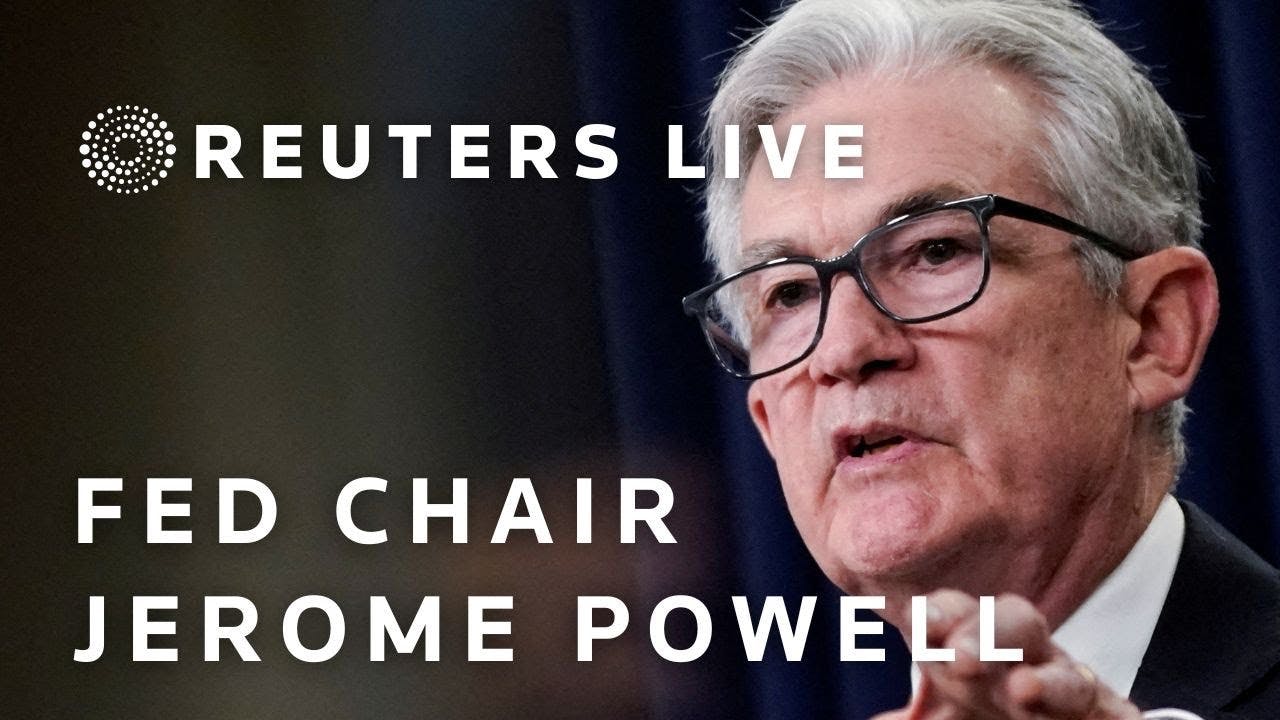LIVE: Jerome Powell testifies on monetary policy in Senate hearing
()

Federal Reserve Policy and the Economy
- The Federal Reserve raised interest rates rapidly to combat high inflation, causing losses in banks and negatively impacting the ability of SVP to manage its Treasury portfolio.
- Despite these challenges, the economy has experienced a soft landing, with inflation decreasing without a significant rise in unemployment.
- Non-bank lending to non-financial firms is exceeding regulated bank lending, raising concerns about overall economic stability.
- There is limited transparency and regulation in the non-bank financial sector, which could lead to surprises and potential systemic risks during a crisis.
- Financial intermediation is moving out of banks and into non-bank financial institutions, which poses risks that need to be understood and managed.
- The discount window should be modernized, the stigma associated with its use should be eliminated, and banks should be able to access it 24/7.
- The Federal Reserve's goal is to align demand with supply, but the housing market has not cooled enough to achieve a better balance between housing supply and demand.
- The Fed is focused on aggregate inflation, which includes goods and services, not just housing inflation.
- The Fed does not expect an overall decline in the price level, and the US Federal government is on an unsustainable fiscal path.
- The US economy is growing at a healthy and sustainable pace, with low unemployment and declining inflation.
- Food inflation has decreased compared to a year ago, although it remains higher than six years ago.
- The US economy is in better shape than other major economies, particularly China.
- The Fed is concerned about the dramatic expansion of its balance sheet and is attempting to reduce its footprint through quantitative tapering, while government spending continues to increase.
Basel III Capital Requirements
- The proposed Basel 3 endgame capital requirements may disproportionately increase the cost of mortgages for disadvantaged borrowers, making it harder for them to attain homeownership.
- There is a lack of consensus among committee members on the Basel 3 endgame proposal, and significant modifications may be necessary to address concerns before it can be implemented.
- The Basel III proposals should be re-proposed because they are based on a flawed foundation and do not adequately address the concerns of various stakeholders.
- Increasing capital requirements may be necessary, but it should be accompanied by reducing the regulatory burden.
- Senator Vance expressed concerns about applying the regulations to banks below $700 billion in assets, arguing that it may not solve the underlying problems exposed by the SVB and First Republic failures.
- The Fed is considering extending the Basel III regulations to include category four banks, which includes regional banks like SVB.
- The Fed has not made any final decisions on the threshold for applying the Basel III regulations and is currently reviewing comments and considering changes to the original proposal.
- A proposal that would mandate Regional Banks to issue new long-term debt is being reviewed, with concerns about its disproportionate impact on smaller Regional Banks.
Housing Affordability
- The ongoing housing shortage, attributed to restrictive zoning, high-interest rates, tighter underwriting, and underfunding of affordable housing programs, is likely to lead to continued housing inflation, making it less affordable for low and middle-income Americans.
- The high cost of housing, particularly the unaffordability of modest one-bedroom rental homes, is a problem for the economy.
- The housing shortage and the pandemic's effects, including higher interest rates, are contributing factors to the housing affordability issue.
- Housing costs remain high despite the moderation of overall prices, exacerbating the affordability crisis. Higher interest rates can worsen this problem by making mortgages more expensive and hindering housing development.
- The Chicago Fed president referred to housing as a "missing piece of the puzzle" in the Fed's path to lower inflation.
- The Fed's monetary policy affects the affordability of housing through interest rates.
- Housing inflation is conceptually challenging to measure as it includes financing costs, sale prices, and imputed rent.
- The Fed does not directly impact the supply of affordable housing, which is typically connected to government programs.
- The housing affordability crisis is significant, with many renters in California spending more than 50% of their income on rent.
Inflation and the Economy
- Dynamic pricing can have implications for consumers and may lower prices overall during slow periods.
- Supply constraints, such as in the auto industry and housing, contributed significantly to inflation in recent years.
- Shrinkflation, or the reduction of product sizes to maintain prices, is a response to rising input costs and should not be criticized.
- Stock buybacks and dividend payments are not major contributors to inflation, and banning them would not have a significant impact on reducing inflation.
Financial Stability
- Insurance gaps due to climate change, such as the withdrawal of home insurance providers in California, pose a significant issue for the overall stability of financial institutions and the broader economy.
- The Fed is monitoring the commercial real estate market and is in dialogue with banks that have high